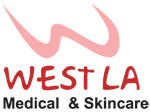Rosacea is a fairly common chronic condition, affecting almost 16 million American adults. [1] Facial redness, occasional pimples, tiny red veins and stingy skin are some of the signs of rosacea. It is often worsened by alcohol, heat, exercise and sun exposure. Whilst it can be covered with make-up or diminished with creams, many people search for a more permanent and long lasting solution to their skin-reddening issue.
There are 3 main phases of rosacea:
- Pre-rosacea is when the skin appears flushed due to dilation of blood vessels in the skin.
- Vascular rosacea is when the symptoms worsen and skin begins to redden. There may be some minor inflammation.
- Inflammation is when the skin becomes bumpy and blistered, particularly on the nose, cheeks, forehead and chin.
This chronic condition cannot be cured, but it can be significantly improved with the right treatment.
Lifestyle changes
Many rosacea sufferers find that particular foods or activities tend to worsen their symptoms. For example, sun exposure, vigorous exercise and thick make-up may exacerbate the issue. Wear an SPF daily and keep your skin out of the sun where possible. Keeping hydrated and taking good care of your skin is the easiest and simplest way to keep mild rosacea under control. Avoid spicy foods and caffeinated hot drinks, especially in hot weather.
For sudden or stubborn flare-ups, antibiotic gels and medications are available. These include ingredients such as metronidazole, azelaic acid and ivermectin. These topical treatments are short-term and should improve symptoms fairly quickly. They can also be used on an ad-hoc basis in many cases but must be prescribed to you by a professional.
Isotretinoin capsules are often used to treat acne and spots. However, the capsules and gel can be used to treat mild forms of rosacea. You may need to use specialist moisturizers to protect your skin as isotretinoin can be quite drying.
Retin-A and Tretinoin are forms of retinoids – retinoids encourage and affect the growth of skin cells. Ongoing use of retinoid products can reduce redness, pimples and skin irregularities. In some cases, however, retinoids may worsen redness.
IPL (or Intense Pulsed Light) uses lasers to reduce the number and size of dilated blood vessels in the face, as well as flushing, redness and breakouts. After only one or two treatments, symptoms can be greatly reduced. This treatment will simultaneously reduce brown spots and pigmentation caused by sun exposure and againing. Results may require 3-4 treatment sessions spaced 3 weeks apart.
Radiofrequency Vein Treatment
Radiofrequency is a colour-blind system that uses energy to eliminate the small unwanted vessels seen in vascular rosacea. The red vessels that accumulate on the nose, cheeks, and chin can be effectively eliminated. Results are immediate and may require an additional follow-up after 2-3 months.
Whilst the symptoms of rosacea can be irritating and distressing, there are many options available. Depending on your skin type, Dr. Mealmed is able to effectively treat you with FDA cleared treatment solutions.
If you have any questions about our various rosacea treatments including antibiotics, creams, gels or IPL, radiofrequency vein treatment, or would like to schedule a consultation – please schedule an Online Appointment or call toll free 1-88-88-West LA (310-473-1734).
[1] https://www.pharmacytimes.com/publications/issue/2011/may2011/-coping-with-rosacea-a-guide-from-triggers-to-treatments
